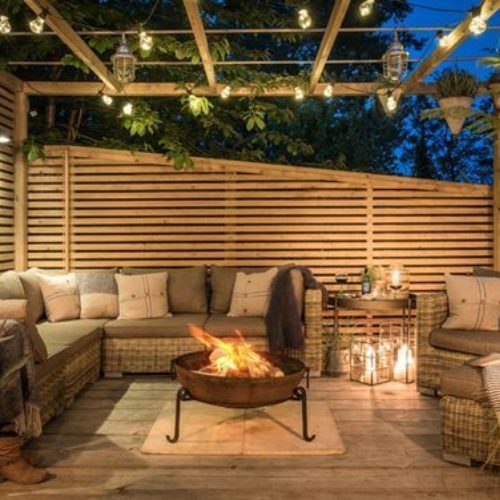Composite Vs. Wood Deck: What You Need to Know
When it comes time to design and build your deck, you’ll be faced with a big decision: will you go with a wood deck or a composite deck. In order to make your decision, you’ll need consider everything from cost to sustainability. In today’s blog, the lumber experts at AIFP walk you through the factors that will help you make a smart decision.
Composite Vs. Wood Deck: Cost
When it comes to cost, you have to consider the short-term and long-term costs of your deck. While wood prices have been high, softwoods like cedar, for example, are considerably less expensive than composite decking. Wood decking also retains more value than composites when it comes time to sell your home, which makes it an even better investment. While composite decking can potentially last longer than wood decking, the up-front expense is much higher than wood.
Composite Vs. Wood Deck: Look and Feel
When it comes to the appearance of your deck, you simply can’t beat the natural beauty of wood. Composite decking attempts to imitate the look of natural wood grains, but it doesn’t compare to the real thing. In fact, there’s currently no product on the market that successfully mimics the look and feel natural wood. (Or the delightful smell!) Not only does composite decking not look as good as natural wood, but it also gets hotter in the sun, making it less comfortable in those summer months.
Composite Vs. Wood Deck: Maintenance
Wood has a reputation for requiring a great deal of maintenance, but naturally rot-resistant woods like cedar likely require less care and maintenance than you’re imagining. Sure, you’ll have to clean, reseal, and treat the deck every couple of years, but occasional cleaning will be required even if you’re working with composite decking.
Composite Vs. Wood Deck: Versatility
When you buy composite decking, you’re locked into the same look for the entire time you own the deck. Wood decking, on the other hand, can be easily transformed with some sanding and a new coat of stain. Plus, since composites are manufactured, if you decide to add onto your deck, you could have problems finding a matching product. With wood, you can simply purchase the same wood species from anywhere and your addition will match.
Composite Vs. Wood Deck: Sustainability
As a natural, renewable resource, wood is much more sustainable than composite. While wood decking is biodegradable, the synthetic materials used to create composite decking will end up in a landfill when you’re done with it. Wood decks also improve air quality by absorbing carbon dioxide and releasing oxygen. While you may think that wood is depleting forests, sustainable harvesting practices have greatly contributed to the fact that America has more softwood trees than it did a hundred years ago. In fact, AIFP rejects illegal logging practices and supports sustainable forestry practices that help keep this balance.
Where to Buy Lumber for Your Deck?
At AIFP, we leverage our relationships with mills and suppliers to deliver the best lumber at the best prices. In fact, we trade cedar wood, Southern yellow pine, SPF lumber, and pressure-treated wood for large manufacturing and construction projects across the country. Contact us today to learn more about our product solutions and how we can help you meet your diverse needs. In the meantime, check out our lumber blog where we cover everything from understanding wood movement to what you need to know about cedar fencing.
Photo Credit: House of Turquoise

Jump Start Your Career
Up for the challenge? We'll give you the tools to excel. AIFP is continually growing. We recruit new traders year-round.
